Opening Thoughts
As a young professional fresh out of college, ordering takeout daily, eating, and throwing away piles of plastic containers always left me feeling empty inside. Every time I looked at my trash bin stuffed with packaging, takeout boxes, and delivery boxes, I wondered if this was really the right way. Then one day, I came across the concept of "zero-waste living" on social media and was instantly drawn to it. From that moment, I began my zero-waste journey, filled with laughter, tears, and abundant growth and learning.
The Zero-Waste Journey
When people first hear about zero waste, many might think it's an unattainable goal. But actually, zero waste isn't some profound lifestyle - it's about returning to the essence of living: making the most of everything and recycling. Think about how our grandparents' generation lived - isn't this exactly how they did things? They would clean and reuse every glass bottle, transform old clothes into cleaning rags, and turn leftovers into new delicious meals.
When I first encountered the zero-waste concept, I conducted a small experiment that I called a "waste audit." For an entire week, I recorded all the waste I produced and categorized it by type. The results were shocking! Plastic packaging accounted for nearly half, with takeout containers making up a large portion. Think about it - ordering lunch and dinner takeout meant generating two plastic containers every day. Add to that snack wrappers, delivery packaging, beverage bottles, and more - this seemingly insignificant waste was silently damaging our environment.
After completing the waste audit, I began seriously considering how to reduce this waste generation. I discovered that much of it was actually avoidable - the key lay in our lifestyle habits and consumption patterns. So, I began changing my lifestyle step by step, starting with the most basic shopping habits.
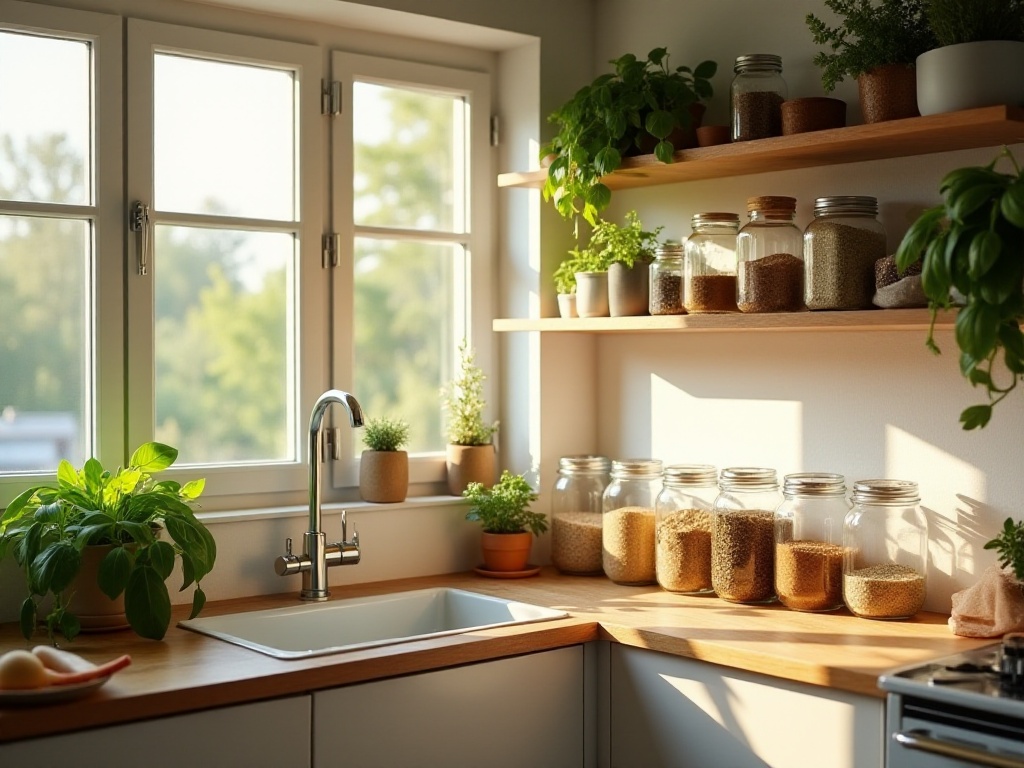
Shopping Revolution
Change often begins with the simplest things. My first step was completely giving up plastic bags. I bought several canvas shopping bags and mesh bags online, keeping them in my purse and office drawer to ensure they were always available. At first, I often forgot to bring them, realizing several times at the supermarket that my shopping bags were still at home. But that's okay - failure is the mother of success, and after practicing a few times, I remembered.
Did you know that a regular plastic bag takes 450 years to fully decompose, while a cotton bag can be used hundreds of times? Think about it - using one reusable cloth bag instead of hundreds of plastic bags that take 450 years to decompose - this calculation makes sense any way you look at it. Now whenever cashiers ask "Do you need a plastic bag?" I proudly take out my cloth bag and say "No thanks, I brought my own."
Besides shopping bags, I also prepared some glass jars and stainless steel containers specifically for buying bulk foods. I remember the first time I brought a glass jar to buy rice at the local bulk store, the owner looked surprised. But when I explained it was to reduce plastic packaging, he immediately smiled approvingly and even introduced me to other bulk items available in the store.
Now I've found many items available for bulk purchase, from rice, flour, and nuts to seasonings, dried goods, and even laundry detergent and body wash that can be purchased with your own containers. It's not only environmentally friendly but also much cheaper than supermarket prices. Once when I brought a glass bottle to buy soy sauce, the shop owner praised me saying, "Young people nowadays are so environmentally conscious! That's wonderful!"
In terms of shopping, I've also developed another good habit: making shopping lists before each trip. This not only prevents impulse purchases but also reduces waste from buying wrong items. I keep a list of needed items in my phone's notes, only buy what's on the list, and don't get tempted by store promotions.
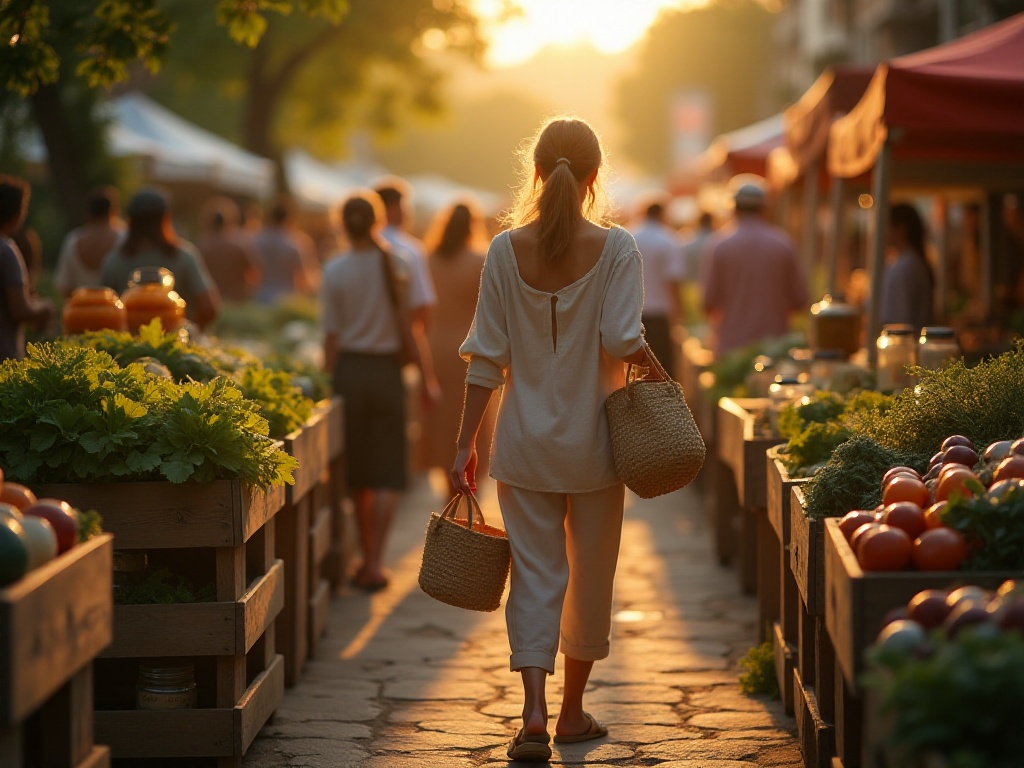
Kitchen Transformation
Honestly, the kitchen is one of the hardest areas to transform because it's so easy to generate waste here. But after some time experimenting, I found some good solutions. First, I replaced all plastic wrap with silicone food covers and beeswax wraps. Silicone covers can be reused and seal particularly well. Beeswax wraps are made from cotton cloth dipped in beeswax, and they can not only wrap food but also allow air flow, making them especially suitable for fruits and bread.
Disposable kitchen paper was replaced with reusable cotton cloths. I cut old T-shirts into small pieces, folded them, and kept them in the kitchen, throwing them in the washing machine after use. Honestly, this is not only environmentally friendly but also very economical. Previously I had to buy several rolls of kitchen paper each month, now I don't need to buy any.
My proudest "creation" is my kitchen waste processing system. I placed a compost bin on the balcony specifically for fruit peels, vegetable leaves, and other kitchen waste. At first, I worried about odors, but as long as you control moisture and turn it regularly, there's actually no smell at all. After a few months, this kitchen waste turns into black organic fertilizer.
I grow some vegetables and herbs on my balcony using this homemade organic fertilizer. You can't imagine how sweet the cherry tomatoes grown from your own kitchen waste are! Every time I pick fresh tomatoes and see their bright red color, I feel particularly satisfied. I think this must be nature's reward for our environmental protection efforts.
Regarding food purchasing, I've gained new insights. Previously I would buy lots at once, often resulting in spoilage before consumption. Now I purchase based on actual needs, choosing loose fresh vegetables and fruits when possible, avoiding excessive packaging. To reduce food waste, I've learned many food preservation tricks, like keeping herbs in water to maintain freshness, and wrapping lettuce in damp towels to extend shelf life.
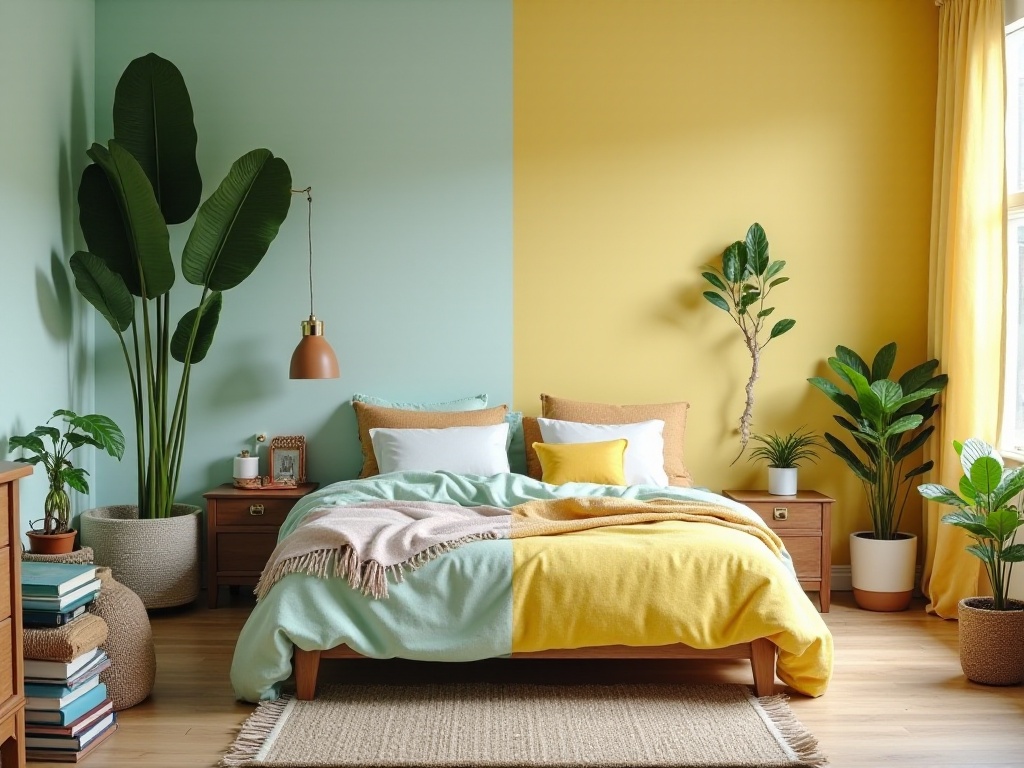
Bathroom Innovation
The bathroom transformation was an unexpected surprise. Initially, I thought this would be the hardest part since we're all used to using beautifully packaged care products. But when I actually started trying natural care solutions, I discovered it was particularly simple and the results were surprisingly good.
First, I switched from shower gel to handmade soap. When I first started using it, it didn't feel smooth enough, lacking that silky feeling of shower gel. But after using it for a while, I found my skin actually became better than before. Because handmade soap is made with natural oils, containing no irritating chemical components, it's particularly gentle.
Shampoo was also replaced with shampoo bars, which took a bit more effort to adjust to. Initially, my hair felt very dry and difficult to manage. But after persisting for about two weeks, my hair's condition began to improve, and oil secretion became more balanced. Now my hair is shinier than before and doesn't get oily as easily.
Toothpaste was replaced with tooth powder, one of my favorite changes. The tooth powder is made from baking soda, coconut oil, and peppermint essential oil, containing no harmful chemicals. At first, the taste seemed strange, but I quickly adapted. Moreover, after brushing with tooth powder, my teeth feel particularly clean and my breath especially fresh.
For makeup removal, I chose the simplest solution: coconut oil. Yes, the same coconut oil used for cooking. It not only easily removes heavy makeup but also moisturizes the skin. After washing with warm water, my face feels very fresh, with no greasy feeling at all.
To reduce packaging waste, I've tried many innovative solutions. For example, using natural loofah instead of shower puffs, bamboo toothbrushes instead of plastic ones, and reusable makeup pads instead of disposable cotton pads. These small changes accumulated have not only greatly reduced bathroom waste but also made my care routine more natural and healthy.
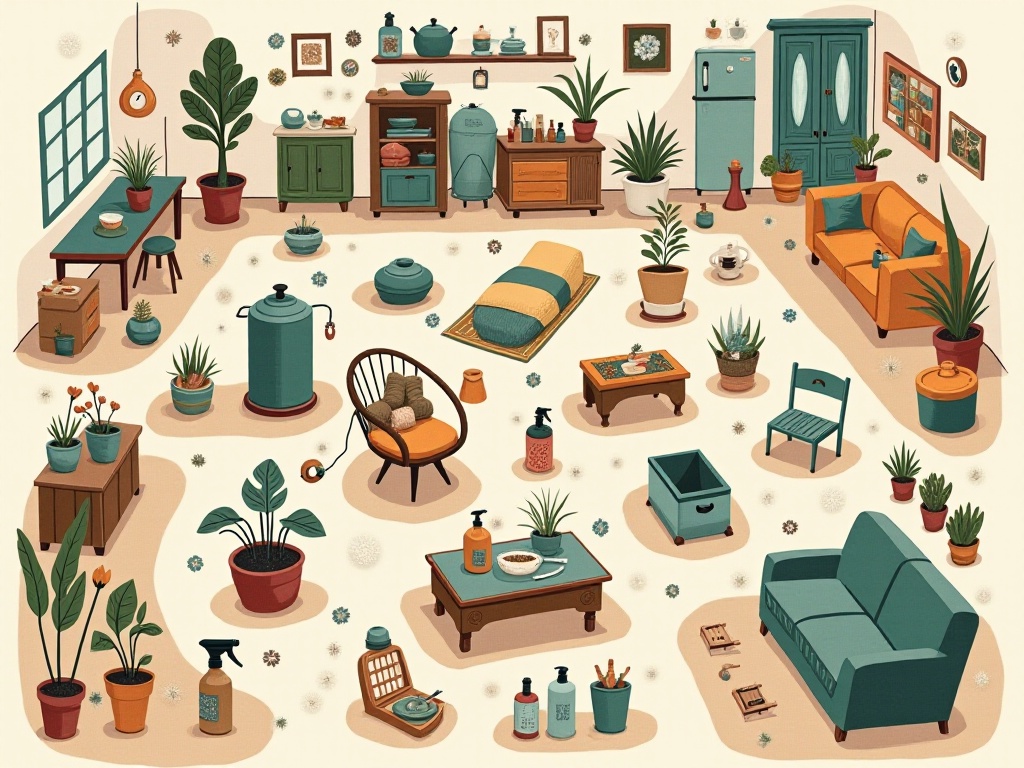
Wardrobe Organization
Honestly, organizing my wardrobe was the most guilt-inducing part. During the process, I realized how many clothes I had barely worn. The environmental problems brought by fast fashion are actually much more serious than we imagine. Did you know that making an ordinary T-shirt requires 2,700 liters of water, equivalent to one person's drinking water for 10 years? Moreover, many clothes use harmful chemical dyes in their production process, which eventually pollute water sources.
After careful consideration, I decided to practice the "minimal wardrobe" concept. First, I took out all the clothes from my wardrobe and categorized them into "frequently worn," "occasionally worn," and "rarely worn." Those rarely worn clothes were either ill-fitting, out of style, or simply impulse purchases.
For these idle clothes, I thought of several solutions. Those still in good condition, I gave to friends in need or donated to charities. Those no longer wearable, I found ways to repurpose. For example, turning old T-shirts into shopping bags or cleaning cloths, converting torn jeans into storage bags, and unraveling old sweaters to knit new items.
This organization gave me great insight. I began to seriously consider the necessity of each clothing purchase. When buying new clothes, I ask myself several questions: Do I really need this piece? How's the quality? How long can I wear it? Does it match my personal style? This thinking helps me avoid many impulse purchases.
I also learned some tips for extending clothing life. For example, proper washing methods can make clothes last longer, timely repairs can prevent clothes from being discarded, and appropriate storage methods can keep clothes in better condition. Now although I don't have many clothes in my wardrobe, each piece is something I truly like and wear regularly, which feels particularly good.
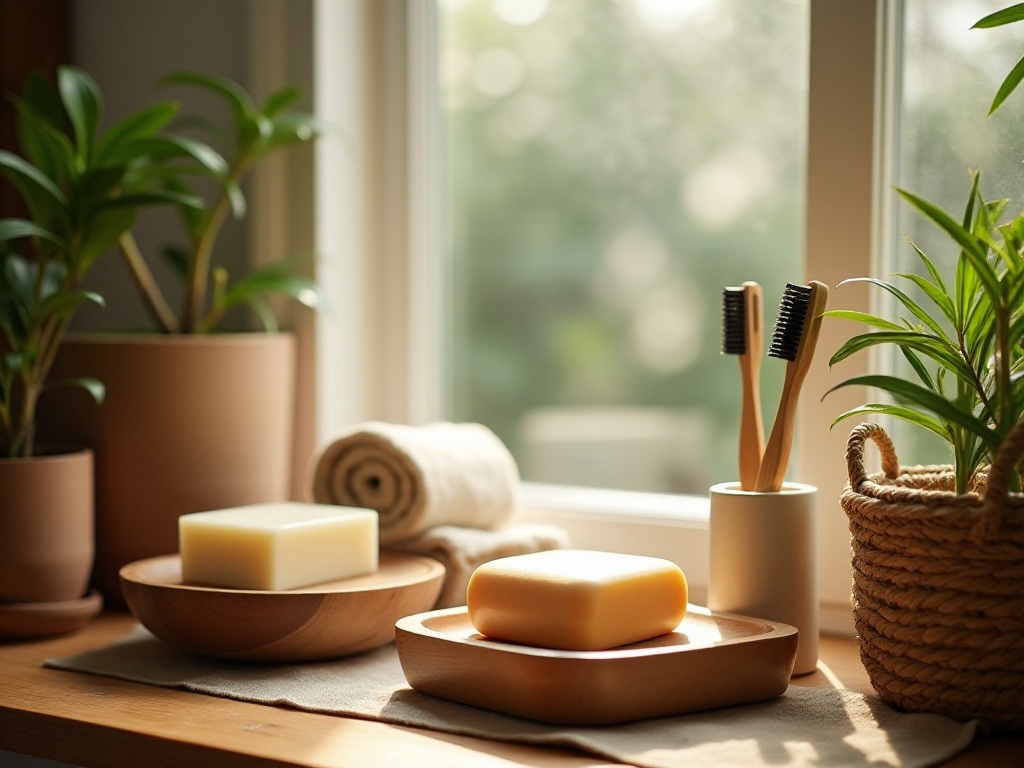
Results and Reflections
After practicing zero-waste living for over a year, I've truly felt the changes. The most obvious is the reduction in waste - now I only need to take out the trash once every two weeks, and the garbage bags are smaller too. I used to think waste sorting was troublesome, but now I find it particularly simple because there isn't much waste to begin with.
There have also been significant economic benefits. Although there was some initial investment in purchasing reusable items, it has saved money in the long run. Not having to frequently buy garbage bags, plastic wrap, kitchen paper, and other disposable items, reducing unnecessary clothing consumption, and choosing bulk goods which are cheaper than packaged products.
Most important is the change in mindset. Previously, I always pursued novelty, wanting to buy everything I saw, but now I've become more rational and restrained. I've begun to rethink the difference between "needs" and "wants," and also more cherish every item around me. This lifestyle attitude makes me feel particularly fulfilled and grounded.
Of course, zero-waste living also has some challenges. For example, I still haven't found completely packaging-free cat food, and it's very difficult to find electronic products that don't use any plastic packaging. But that's okay - zero waste doesn't require us to produce absolutely no waste, but to make changes within our capabilities. As I often say, we don't need a few people doing it perfectly, we need more people taking action together.
Final Words
Looking back on this year-plus of zero-waste living, I think the most important thing is changing our life attitudes and consumption habits. This isn't an overnight process, but a habit that needs to be gradually developed. If you want to try zero-waste living, you can start with one small habit. Maybe it's carrying a water bottle, bringing your own shopping bags, or trying environmentally friendly cleaning products.
Remember, everyone's efforts are important. You might think your changes are insignificant, but when more people join in, these small changes will gather into a force that changes the world. Let's take action together, contributing to the Earth and our future.
Zero-waste living isn't just a lifestyle, it's a life attitude. It teaches us to cherish resources, respect nature, and care for the Earth. In this process, we can not only reduce environmental damage but also find a more meaningful and valuable way of living.
Do you find zero-waste living interesting? Feel free to share your thoughts and experiences. Let's discuss, progress together, and work together to create a better future.


